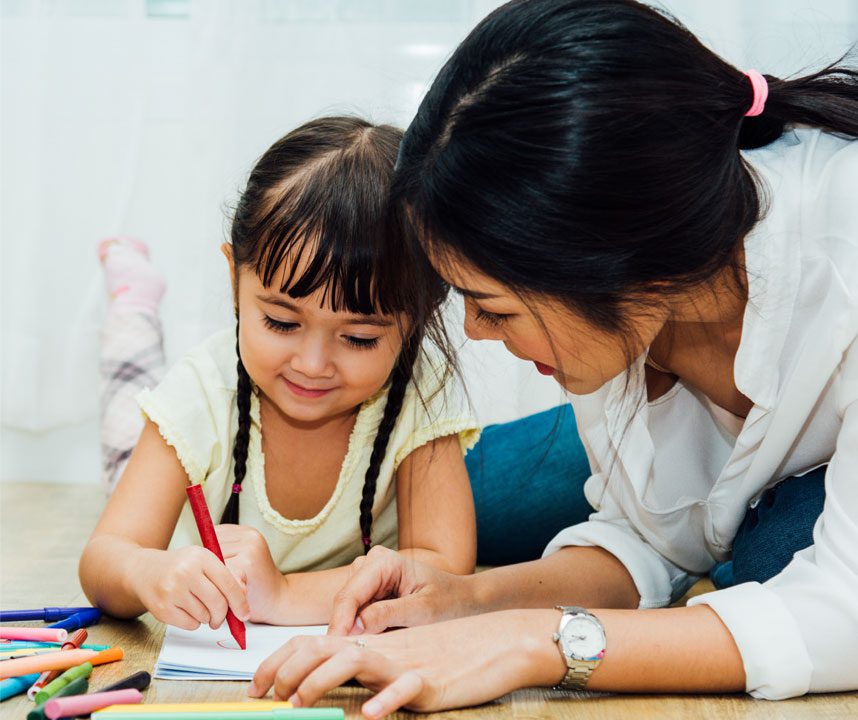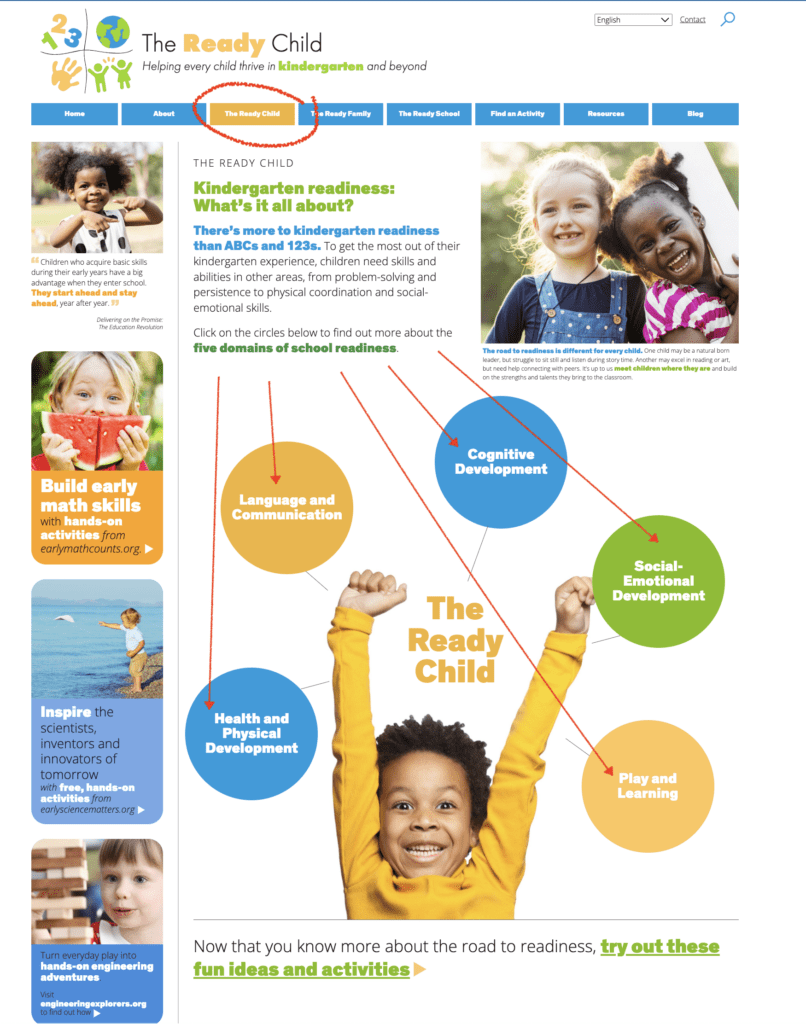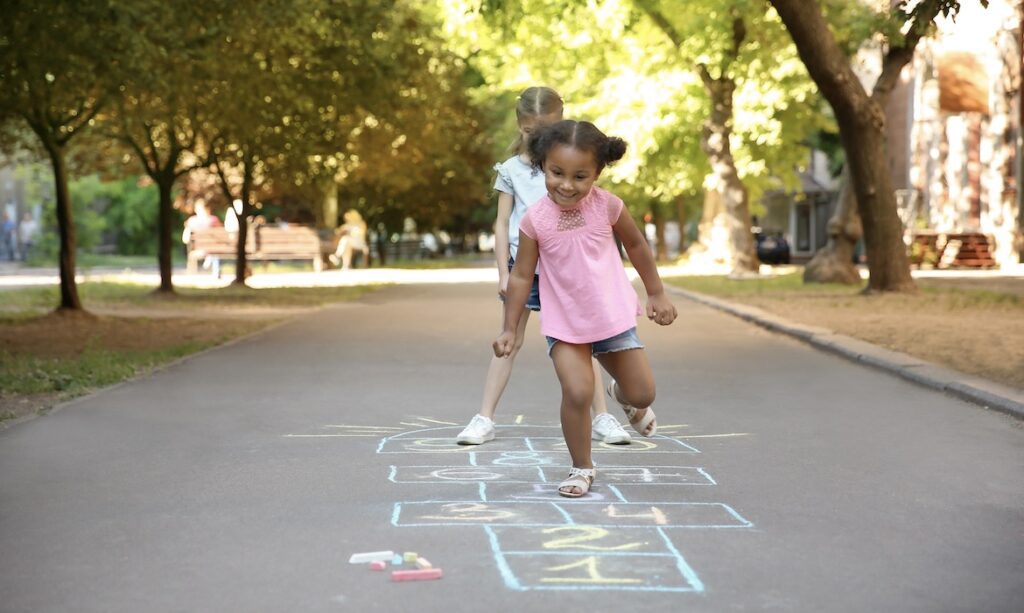Kindergarten Success Starts Here!

With less than a month to go until the start of the school year, many parents are wondering if their preschoolers are ready for the academic challenges of kindergarten.
If this is you, we've got some reassuring news: Kindergarten readiness is less about academic readiness and more about learning readiness!
In other words, most teachers are more concerned about a child's self-care and social-emotional skills than they are about how many letters or numbers a child has mastered. If your child can sit in a chair, be a good listener, wait patiently, and perform self-care tasks independently, this will free up the teacher to tackle letters, numbers and other academic pursuits.
So what exactly is school readiness? In short, it refers to the skills and abilities that will help children succeed in kindergarten and beyond.
Every child's road to readiness is different. One child may be a natural-born leader who struggles to sit still and listen during storytime. Another may excel in reading or art but need help connecting with peers. It’s up to us to meet children where they are and build on the strengths and talents that they bring to the classroom.
There are five skill areas that early childhood educators use to determine school readiness. These five skill areas, often referred to as domains, represent the following aspects of child development:
- Language and communication
- Cognitive development
- Social-emotional development
- Play and learning
- Health and physical development
Ready to learn more about the five domains of school readiness listed above? Let's take a quick tour of readychild.org to help you get started:
- First, click on the READY CHILD menu button (circled in red below) to visit our READY CHILD page.
- Then click on each of the five circles (see red arrows) to learn more about the skills associated with each domain, as well as ways to help your child develop these skills.

Once you've learned about the different domains of school readiness, visit our FIND AN ACTIVITY page to help your child progress in every domain.
You'll find scores of fun and engaging activities designed to help children develop life skills such as asking for help or using the bathroom independently; academic skills such as number and letter recognition; social-emotional skills such as taking turns; and fine-motor skills to prepare little hands for handwriting and other activities like using scissors and glue. You'll also find activities that will teach your child how to open a juice box, a cheese stick, and a yogurt cup, as well as a morning routine that will help everyone in your family start the day in a calm and collected way.
This is what school readiness is all about!
So let's get started:
- First, click on the FIND AN ACTIVITY menu button (circled in red below).
- Then choose any of the 49 activities featured in this section and watch your child's skills and self-confidence soar.

Here's what an activity page looks like:

Because the road to readiness begins at home, we've also created a READY FAMILY page, where you'll find a wealth of ideas about what you can do at home and in the community to:
- Create positive expectations about the transition to kindergarten
- Move your preschooler toward greater independence
- Build new routines
- Build your child's foundational skills through play
- Build strong family-school relationships
- Be a prepared parent
Here's how to get started:
- First, click on THE READY FAMILY menu button (circled in red below).
- Then click on the six READY FAMILY buttons to prepare for the big changes ahead!

You won't want to miss our RESOURCES section, which will guide you to a treasure trove of Ready Child, Ready Family and Ready School apps, blogs, books, infographics, social media sites, videos, web resources, and workshops.
Don't forget to subscribe to our READY CHILD BLOG, where you can read posts written by our early learning expert, gain valuable insights into the developing brain, and learn about activities that you can incorporate into your day to help your child succeed in kindergarten and in life.

Don't be surprised if your child comes home exhausted during the first month of the school year. Try squeezing in a walk in the park after school and setting bedtimes a bit earlier to give your child time to relax and recharge.
We also recommend lightening your child's extracurricular load during this transitional period, whether it's sports or music lessons. Less is best during these first few months!
As a mother and an early childhood educator, I speak from experience when I say that it will get easier as your family adjusts to the routines of kindergarten life. By October, you and your child will be navigating this new world with ease!